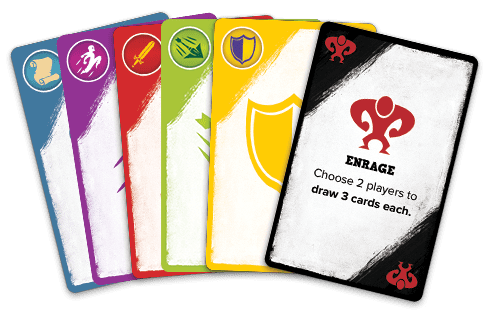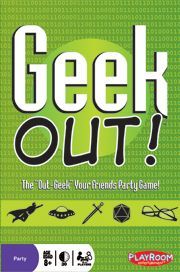/pic3370214.jpg)
BACKGROUND: 5 Minute Dungeon is a co-operative card published by KOSMOS for 2-5 players. Cards are played in rapid succession in order to travel
GAMEPLAY: Each player begins with a unique character and matching deck. Then players decide which boss they'll be fighting, and shuffle a number of Door cards together indicated by the bottom of the Boss Mat, and a number of Challenge cards equal to players. Flip the first card and start the timer.
DUNGEON: Each Door card has a number of resources on the bottom. All players attempt to match those resources from their hand until all symbols on the Door card have been matched. Once they have, the Door card and all cards assigned to it are removed from the game, and draw a new Door card. Resources can always be assigned to Door cards, even without matching. Other ways to defeat Door cards are with a Hero's Ability or Action cards. Any time you are under your hand limit, draw back up.

WINNING: Once players have gotten through all Door and Challenge cards, they must fight the Boss. Like always, assign Resources to the Boss card to defeat it, but non matching cards cannot be assigned. If the players manage to defeat the Boss before time runs out, they win. However, players lose if they run out of time, cards, or cannot defeat something with their cards or abilites.
CONCLUSION: 5 Minute Dungeon is a crazy, ridiculous, hilariously fun game with admittedly some weird, clunky mechanics. The fact that you don't discard your cards when you use them hinders your progress, especially with heroes that focus on discards. The resource is a nice and simple idea when you're timed, but that means it's not as hard as you'd think to lose to a small encounter. However, the end results is that the timer would not work without the game being simple, and vice versa. This is a game that had an idea, and ran with it in a really cool way. The positives outweigh the negatives by a pretty significant amount. This is a dungeon you should definitely explore.
AFTERTHOUGHTS: If you do consider picking up this game, I would also recommend you play with the free timer app available on Android, iPhone, and Windows Store. It is a nice timer with some wonderful voices to add some flavor to the game. My favorite is the Epic voice.


/pic1887522.jpg)


/pic2601683.jpg)
/pic2925485.jpg)